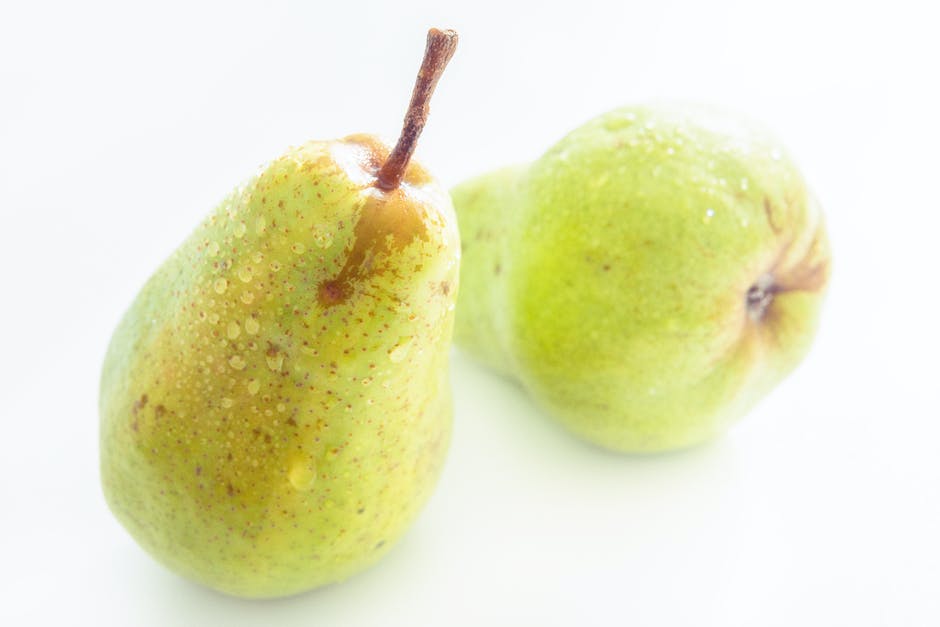As winter sets in, our dietary needs shift subtly to match the changing weather. During these cooler months, it’s crucial to maintain a diet rich in vitamins and nutrients, which can help boost our immunity and combat seasonal illnesses. Fortunately, nature provides us with an array of wholesome fruits that not only satisfy our taste buds but also build our defences against the chilly weather. From the vibrant oranges laden with vitamin C, to the antioxidant-rich pomegranates, the fiber-heavy pears, the tiny but potent kiwi fruits, and the tart and tangy grapefruits – each of these winter fruits packs its own healthful punch.
Oranges
Packed Powerhouse: Winter’s Champion – The Orange
Renowned for their refreshing taste and invigorating aroma, oranges have long been a favorite fruit around the globe. But beyond their tangy flavor and vibrant color, oranges serve as one of winter’s best nutritional allies. Owing to their potent dose of immune-boosting Vitamin C, oranges deliver a crucial advantage in warding off winter colds and bouts of flu when our bodies are most vulnerable.
Stay Hydrated with a Burst of Citrus
Winter’s dry, frigid air can often leave us dehydrated, which can impair bodily functions and weaken our defenses against diseases. Oranges, with their high water content, offer a delicious and efficient way to stay properly hydrated. Every juicy bite helps replenish lost fluids and aids in maintaining the body’s water balance, keeping you healthy and energized.
Oranges: A Rainbow in Winter
Often seen as a ray of sunshine in the bleakest of winters, oranges, with their lush, bright color, can lift spirits too. Their delightful blend of sweetness and tartness offers a pleasant diversion from the typical heavy, stodgy winter fare. Include them in salads, fresh juices, or enjoy them as they are; oranges are versatile, nutritious, and unequivocally illustrate why they’re considered one of the best fruits to consume during the frosty winter months.
A Daily Dose of Orange
While winter can be challenging in many ways, with shorter days and prolonged periods indoors, incorporating oranges into your daily diet can instigate a positive ripple effect on your health. A simple routine of eating an orange a day can boost your immunity, maintain hydration, and even lift your mood – making this citrus fruit a boon to include in your winter nutrition arsenal.

Pomegranates
The Winter Essential: Pomegranates
Chilly winter months bring attention to one of the most delicious and essential fruits: pomegranates. This fruit is packed with various nutrients making it an excellent option to include during the winter season. It has a distinctive ruby-red appearance because of the numerous seeds or arils, each of which is enveloped in a juicy layer, offering a tart and sweet taste.
Rich in Fiber and Vitamins
Pomegranates are high in dietary fiber that aids in digestion and can help maintain a healthy weight. They are also rich in vitamins, especially Vitamin C, which is crucial for boosting your immune system. A single pomegranate can provide as much as 30% of your daily requirement of this vital vitamin. So, adding this fruit to your winter diet can help keep common colds, flu, and other seasonal ailments at bay.
Packed with Antioxidants
The exceptional health benefits of pomegranates come from their wealth of antioxidants. These are substances believed to protect body cells from the harmful effects of free radicals that contribute to aging and various diseases. Pomegranates are a potent source of antioxidants like punicalagin and punicic acid, which are known for their potent disease-fighting capabilities.
Mineral Dense Fruit
Besides vitamins and antioxidants, pomegranates also offer essential minerals such as potassium, calcium, and iron. These minerals can address various health issues related to anemia, bone health, and heart health, respectively.
Thus, pomegranates are undoubtedly an amazing fruit to integrate into your winter diet. You can enjoy them fresh, add them to salads, use them in recipes, or even make juice out of them for a refreshing and health-boosting drink.

Pears
Pears: A Winter Superfruit
Packed with an impressive amount of fiber, pears are a perfect pick for those winter months when our diet might not be as rich in this crucial nutrient. The fact that they are in season during the colder part of the year only adds to their appeal. A pear’s natural sweetness can help satisfy cravings for summertime fruits, while providing the body with the fiber it needs to maintain good health.
The Immunity Boost You Need
There’s more to pears than just fiber – this tasty fruit is also armed with essential vitamins and minerals. When the weather gets cold and the flu season starts to peak, we all could use an extra boost to our immune system. Doing so is simple with pears: their vitamin C and K contents, along with other essential nutrients, act like a shield, protecting your body from common winter ailments.
The Hidden Benefit: Quercetin
Among various vital nutrients that pears contain, they also house a not-so-well-known one called quercetin. This particular flavonoid has been shown to have potent antioxidant properties. Antioxidants, as you might know, are key to eliminating free radicals – harmful substances that can cause damage to cells in our body. By integrating more antioxidant-rich foods, like pears, into your diet, you’re not only helping your body fight off winter bugs, but also promoting overall health and well-being.
Endless Possibilities
Remember, pears can be consumed in multiple ways. Whether sliced and served fresh, pureed into sauces, baked into desserts, or even grilled, they offer both versatility and nourishment in winter months. Loaded with fiber, packed with vital immunity-boosting nutrients, and armed with antioxidants, this winter fruit is truly a jack of all trades, ready to assist in your health and wellness.

Kiwi
Kiwi Fruits: Small Powerhouses
Don’t be fooled by their small size; kiwi fruits are packed full of nutrition and health benefits that are especially beneficial during the winter season. They are well-known for their remarkably high content of essential vitamins and minerals that our bodies need.
A single kiwi fruit contains almost twice the amount of Vitamin C as an orange. This naturally-occurring antioxidant doesn’t just strengthen our immune system, but it is also crucial in warding off winter colds and flu. A stronger immune system means a lower susceptibility to illnesses, keeping you healthier amidst the chilly weather.
The Vitamin E found in kiwi fruits also acts as a potent antioxidant. It helps in protecting our body from harmful free radicals that can lead to chronic diseases. Furthermore, it enhances immunity, making sure we’re even more enabled to fight off pathogens that are common during winter.
In addition to its immunity-boosting properties, kiwi is also an excellent source of much-needed potassium during this cold season. It plays a vital role in heart health, fluid balance, and nerve function.
Then there’s the fiber content. Kiwi fruits are rich in dietary fiber which aids in digestion. This is especially important in winter when our bodies naturally slow down and our digestive systems can become sluggish. Regularly eating kiwi can lead to better gut health, reducing bloating and discomfort, and keeping the digestive system running smoothly.
All these nutrients combined make kiwi a winter superfood. Incorporating these small but mighty fruits as a part of your diet could help you stay in optimal health throughout the winter season. Whether eaten alone, added to salads, or blended into smoothies, kiwi fruits are an easy way to bolster your nutritional intake during the colder months.

Grapefruit
Why Grapefruits? A Winter Wonder Fruit
Those citrusy orbs known as grapefruits are a welcoming sight in the colder months. Not only are they packed with taste that adds a bit of zing to any dreary winter day, these fruits are also stuffed with a number of health benefits that are especially important during the chillier season.
Grapefruits are a star when it comes to their vitamin content. They’re abundant in vitamins A and C, key nutrients necessary for keeping your health at its peak. Vitamin A is well-known for its role in maintaining good vision, particularly low light vision, which can be put to the test during shorter days and longer nights of winter. Vitamin C, on the other hand, helps boost your immune system, fighting off colds and infections, which are common during the winter season.
The high fiber content of grapefruits provides another health perk. Having sufficient fiber in your diet can help in maintaining a healthy weight and can also regulate your digestion. With the surplus of heavy, rich foods often consumed during the winter months, a bit of additional fiber can go a long way in helping you feel your best.
Stay Hydrated This Winter with Grapefruits
One underappreciated aspect of grapefruits is their high water content. Maintaining proper hydration can sometimes be a challenge during winter, as the colder weather can suppress your natural thirst response. By including water-rich foods like grapefruits in your diet, you can easily stay hydrated even in the driest winter months.
So, if you’re looking for a simple yet effective way to level up your nutrition this winter, adding grapefruits to your game plan is superb. With their tangy-sweet flavor and nutritional punch, grapefruits surely earn their place on your winter-super-food list.

Adapting to the seasons is a sustainable way of living, and winter brings forth the gifts of nature that we can avail of for our wellbeing. Incorporating fruits such as oranges, pomegranates, pears, kiwi, and grapefruits into our daily diet can significantly strengthen our immune system, keep us hydrated, and also cater to our need for fiber and important vitamins. Embrace these fruits of winter to enjoy not only their unique deliciousness but also their potential to keep winter blues at bay. Remember, staying healthy is as much about nurturing our bodies with the right foods as it is about maintaining a positive and joyful spirit, even in the face of a biting winter chill.
Writio – your AI writing companion that crafts impeccable content. This article was created by Writio.
